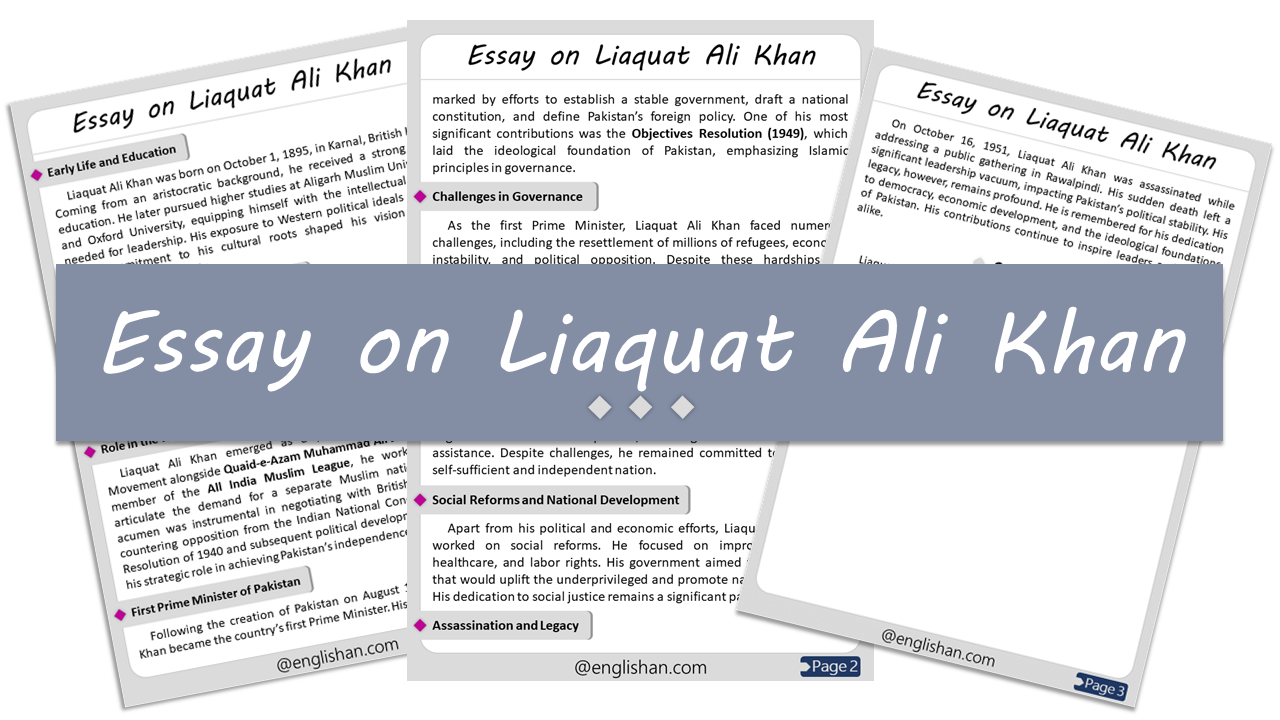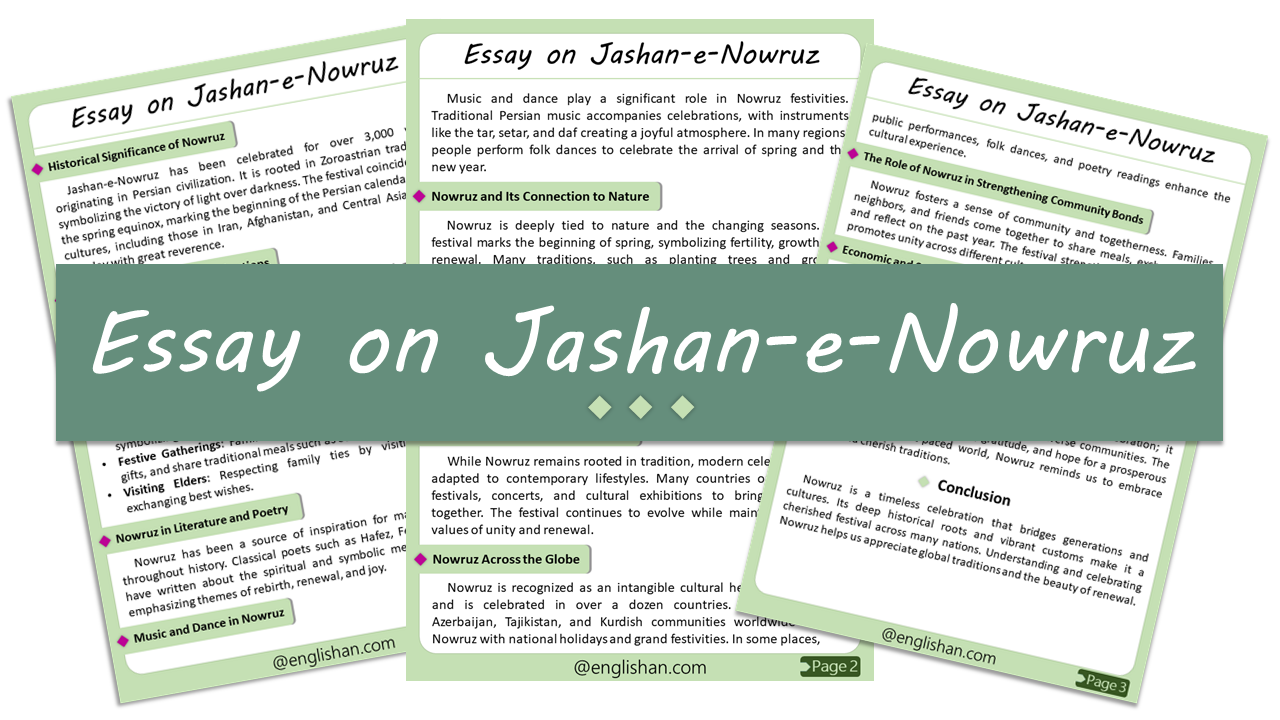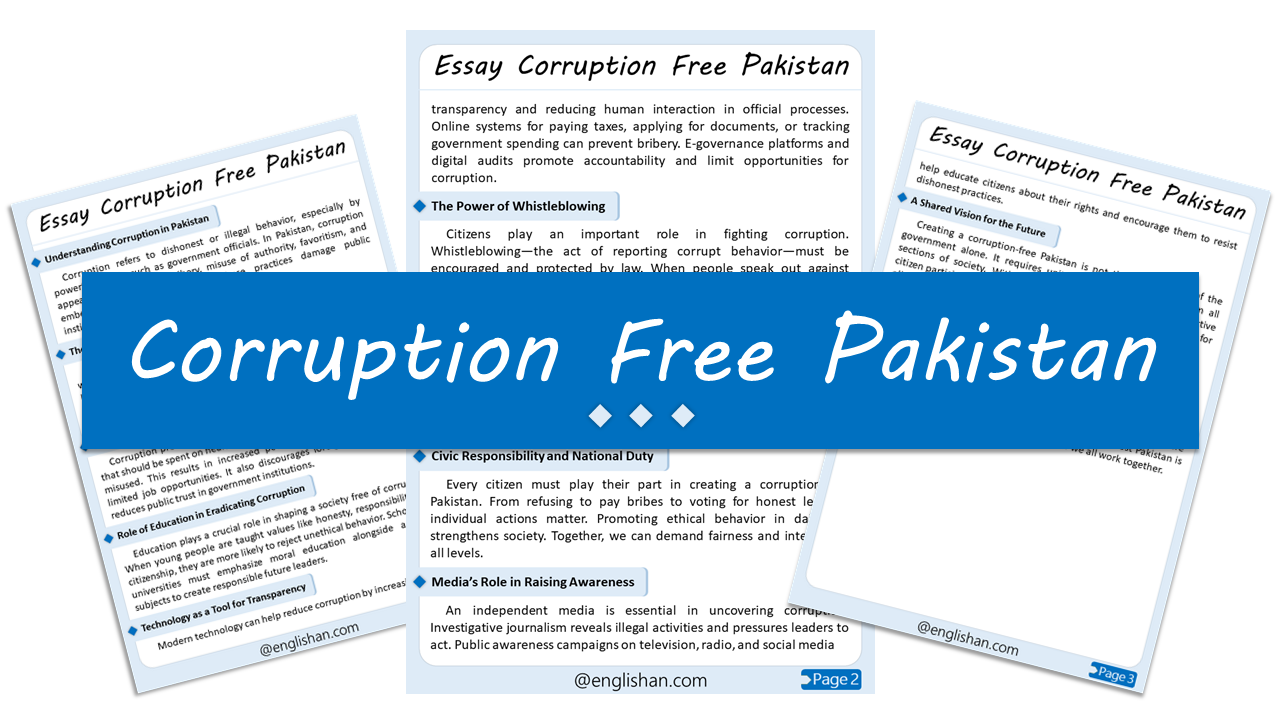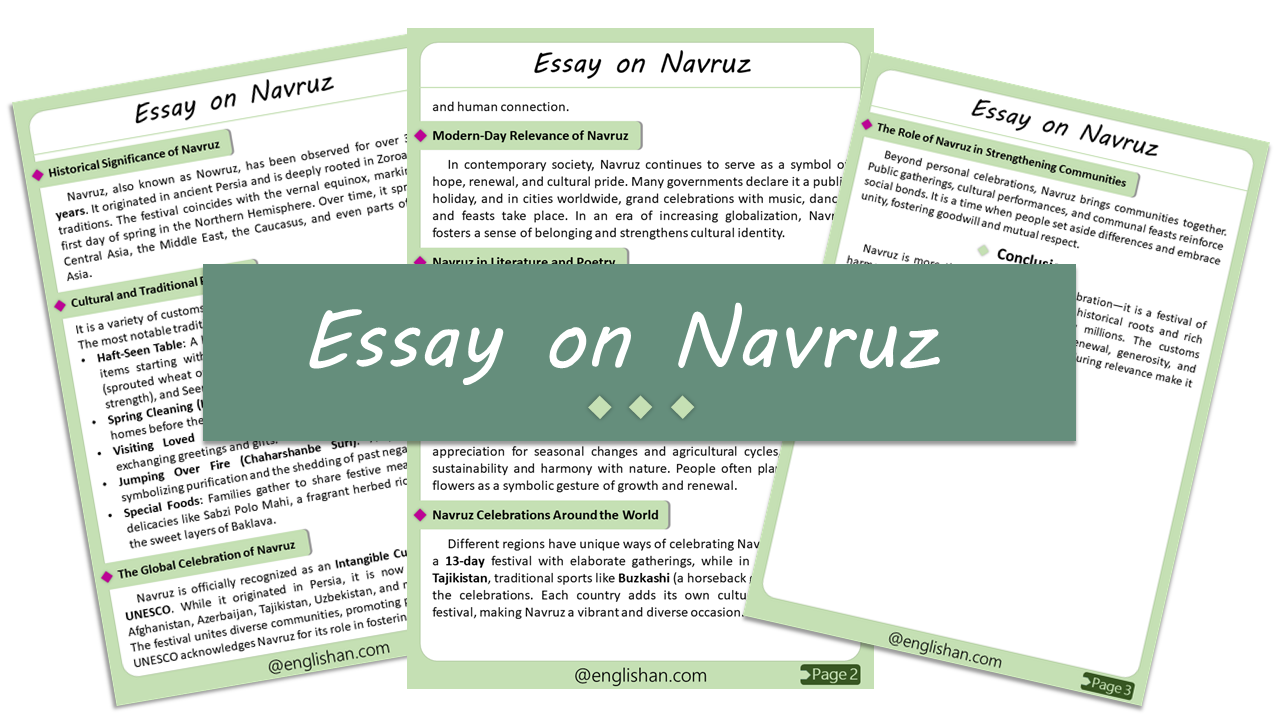When writing about Liaquat Ali Khan, it’s important to understand his role as Pakistan’s first Prime Minister and how he helped shape the nation after independence. This essay on Liaquat Ali Khan explains his early life, education, leadership with Quaid-e-Azam, and major contributions to Pakistan’s government and development. It highlights his dedication to national unity, his work on the Objectives Resolution, and his tragic death in 1951. It’s written in 500 words to help students with homework or exams. You can download this Liaquat Ali Khan essay as a free PDF or image to study or print.
10 Lines Liaquat Ali Khan Essay for Class 2 to Class 5
- Liaquat Ali Khan was the first Prime Minister of Pakistan.
- He was born on October 1, 1895, in India.
- He studied law in England and became a great leader.
- He worked with Quaid-e-Azam for the freedom of Muslims.
- He played an important role in making Pakistan.
- He helped set up the government after independence.
- He was known for honesty, bravery, and hard work.
- He gave speeches to unite the people of Pakistan.
- He died on October 16, 1951, in Rawalpindi.
- He is remembered as a hero of Pakistan.
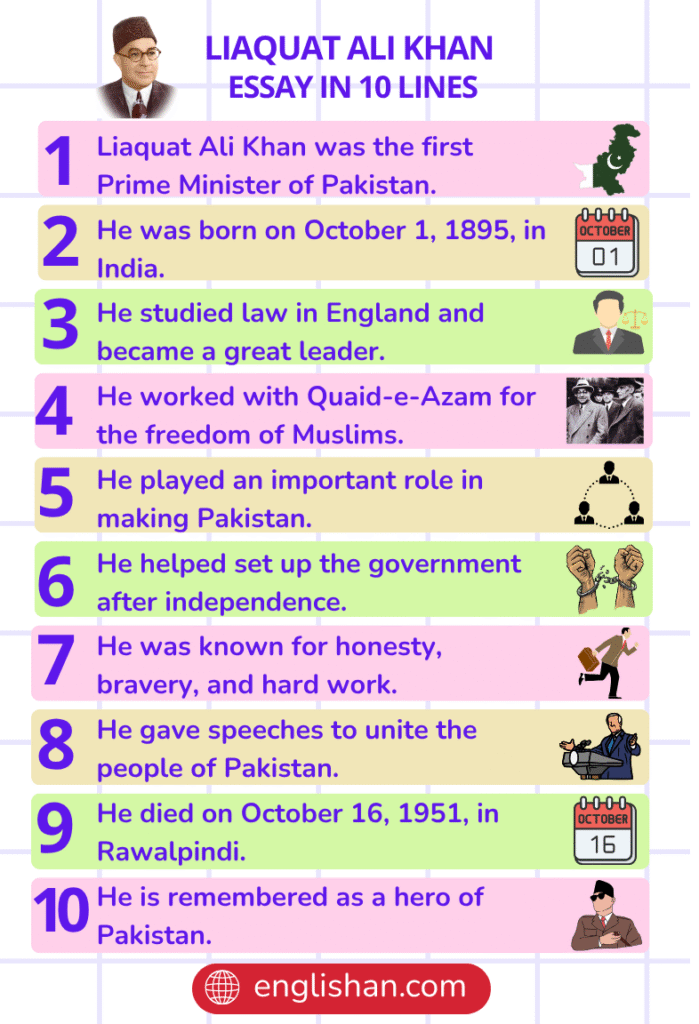
250 Words Essay on Liaquat Ali Khan for Middle School
Liaquat Ali Khan was a great leader and the first Prime Minister of Pakistan. He was born on October 1, 1895, in Karnal, India. He came from a noble family and received his education in India and later in England, where he studied law.
He joined the All-India Muslim League and worked closely with Quaid-e-Azam Muhammad Ali Jinnah. Together, they worked for the rights of Muslims and helped to create a separate country, Pakistan. Liaquat Ali Khan was trusted by Quaid-e-Azam and was known for his wisdom, discipline, and leadership skills.
After Pakistan became independent in 1947, Liaquat Ali Khan was chosen as the first Prime Minister. He worked hard to build a strong foundation for the new country. He focused on education, economy, and national unity. He also introduced the Objectives Resolution in the National Assembly, which later became the base of Pakistan’s constitution.
Liaquat Ali Khan wanted peace and friendship with other countries. He represented Pakistan on many international platforms and tried to show the world that Pakistan was a peaceful and strong country.
Sadly, Liaquat Ali Khan was shot and killed on October 16, 1951, during a speech in Rawalpindi. His death was a big loss for the nation. He is remembered as a brave and honest leader who loved Pakistan deeply. Students can learn from his hard work and dedication to his country.
500 Words Liaquat Ali Khan Essay for Upper Primary and Lower Secondary
Early Life and Education
Liaquat Ali Khan was born on October 1, 1895, in Karnal, British India. Coming from an aristocratic background, he received a strong early education. He later pursued higher studies at Aligarh Muslim University and Oxford University, equipping himself with the intellectual depth needed for leadership. His exposure to Western political ideals and his deep commitment to his cultural roots shaped his vision for an independent Muslim state.
Political Awakening and Entry into Politics
Liaquat Ali Khan’s political journey began when he joined the All India Muslim League in 1923. He became an ardent advocate for Muslim rights, working alongside prominent leaders to address issues of representation and autonomy. His speeches and writings emphasized the need for a separate homeland where Muslims could practice their faith freely and progress socially and economically.
Role in the Pakistan Movement
Liaquat Ali Khan emerged as a pivotal figure in the Pakistan Movement alongside Quaid-e-Azam Muhammad Ali Jinnah. As a senior member of the All India Muslim League, he worked tirelessly to articulate the demand for a separate Muslim nation. His political acumen was instrumental in negotiating with British authorities and countering opposition from the Indian National Congress. The Lahore Resolution of 1940 and subsequent political developments underscored his strategic role in achieving Pakistan’s independence.
First Prime Minister of Pakistan
Following the creation of Pakistan on August 14, 1947, Liaquat Ali Khan became the country’s first Prime Minister. His leadership was marked by efforts to establish a stable government, draft a national constitution, and define Pakistan’s foreign policy. One of his most significant contributions was the Objectives Resolution (1949), which laid the ideological foundation of Pakistan, emphasizing Islamic principles in governance.
Challenges in Governance
As the first Prime Minister, Liaquat Ali Khan faced numerous challenges, including the resettlement of millions of refugees, economic instability, and political opposition. Despite these hardships, he remained dedicated to establishing strong institutions and ensuring national unity. His emphasis on democracy and lawmaking shaped Pakistan’s early political structure.
Economic and Foreign Policies
Liaquat Ali Khan prioritized economic reforms and international diplomacy to strengthen Pakistan. He introduced policies to promote industrial development, stabilize the economy, and reduce dependency on foreign aid. His visit to the United States in 1950 signaled Pakistan’s alignment with Western powers, securing economic and military assistance. Despite challenges, he remained committed to fostering a self-sufficient and independent nation.
Social Reforms and National Development
Apart from his political and economic efforts, Liaquat Ali Khan also worked on social reforms. He focused on improving education, healthcare, and labor rights. His government aimed to create policies that would uplift the underprivileged and promote national integration. His dedication to social justice remains a significant part of his legacy.
Assassination and Legacy
On October 16, 1951, Liaquat Ali Khan was assassinated while addressing a public gathering in Rawalpindi. His sudden death left a significant leadership vacuum, impacting Pakistan’s political stability. His legacy, however, remains profound. He is remembered for his dedication to democracy, economic development, and the ideological foundations of Pakistan. His contributions continue to inspire leaders and citizens alike.
Conclusion
Liaquat Ali Khan played a crucial role in shaping Pakistan’s early years, providing the foundation for its political and economic policies. His leadership, vision, and unwavering commitment to the nation left an indelible mark on Pakistan’s history. Despite the challenges he faced, his legacy endures as a guiding light for future generations, emphasizing the values of democracy, governance, and national unity.
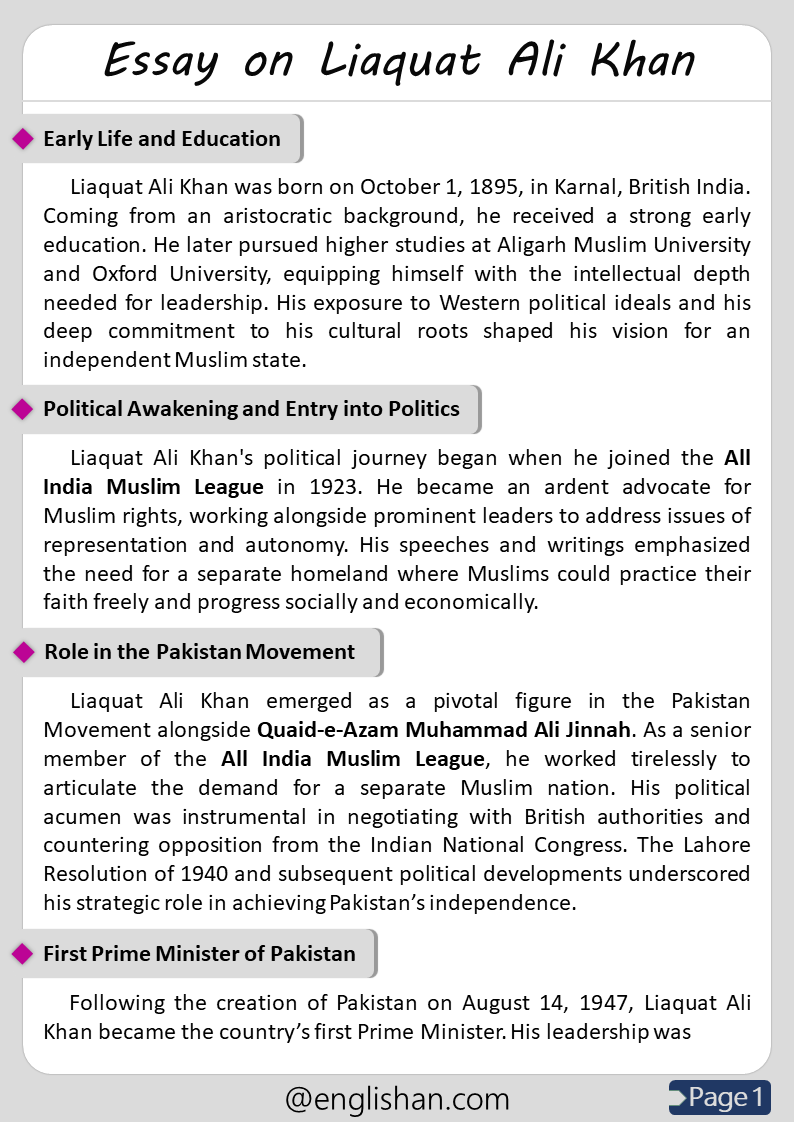
Difficult Words Used in 500 Liaquat Ali Khan Essay
| Word | Meaning |
|---|---|
| Aristocratic | Belonging to a noble or elite class |
| Acumen | The ability to make quick and good decisions |
| Ideological | Related to a system of ideas and beliefs |
| Diplomacy | The management of international relations |
| Governance | The act of ruling or controlling a country |
| Stability | The condition of being steady and secure |
| Assassination | The murder of a prominent person for political reasons |
| Legacy | Something handed down from the past, especially achievements |
Liaquat Ali Khan Essay PDF
You May Also Like
